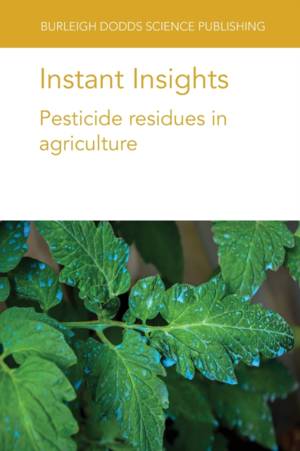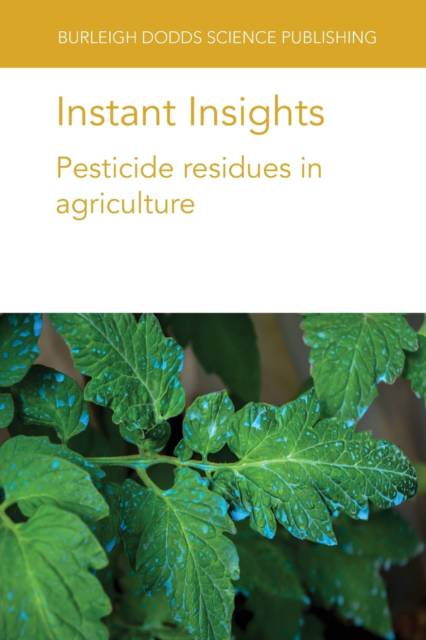
- Retrait gratuit dans votre magasin Club
- 7.000.000 titres dans notre catalogue
- Payer en toute sécurité
- Toujours un magasin près de chez vous
- Retrait gratuit dans votre magasin Club
- 7.000.0000 titres dans notre catalogue
- Payer en toute sécurité
- Toujours un magasin près de chez vous
Instant Insights: Pesticide Residues in Agriculture
Linda J Thomson, Ary A Hoffmann, Keith Tyrell, Sheila Willis, Stephanie Williamson, Davo Simplice Vodouhe, Anthony Youdeowei, Peter Fantke
72,45 €
+ 144 points
Description
This collection features three peer-reviewed literature reviews on pesticide residues in agriculture.
Spécifications
Parties prenantes
- Auteur(s) :
- Editeur:
Contenu
- Nombre de pages :
- 106
- Langue:
- Anglais
- Collection :
- Tome:
- n° 10
Caractéristiques
- EAN:
- 9781801460712
- Date de parution :
- 06-04-21
- Format:
- Livre broché
- Format numérique:
- Trade paperback (VS)
- Dimensions :
- 152 mm x 229 mm
- Poids :
- 154 g

Les avis
Nous publions uniquement les avis qui respectent les conditions requises. Consultez nos conditions pour les avis.






